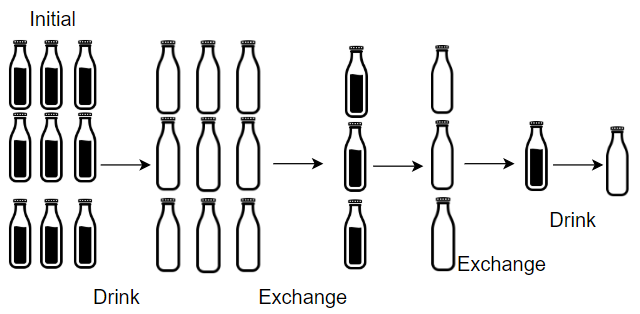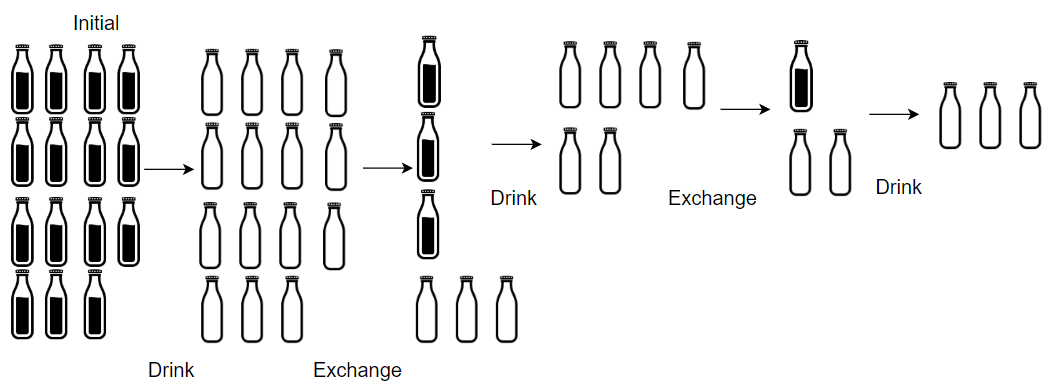1518. Water Bottles
Given numBottles full water bottles, you can exchange numExchange empty water bottles for one full water bottle.
The operation of drinking a full water bottle turns it into an empty bottle.
Return the maximum number of water bottles you can drink.
Example 1:

Input: numBottles = 9, numExchange = 3 Output: 13 Explanation: You can exchange 3 empty bottles to get 1 full water bottle. Number of water bottles you can drink: 9 + 3 + 1 = 13.
Example 2:

Input: numBottles = 15, numExchange = 4 Output: 19 Explanation: You can exchange 4 empty bottles to get 1 full water bottle. Number of water bottles you can drink: 15 + 3 + 1 = 19.
Example 3:
Input: numBottles = 5, numExchange = 5 Output: 6
Example 4:
Input: numBottles = 2, numExchange = 3 Output: 2
Constraints:
1 <= numBottles <= 1002 <= numExchange <= 100
class Solution { private int res = 0; public int numWaterBottles(int numBottles, int numExchange) { int empty = 0; int lastempty = 0; while(numBottles != 0) { res += numBottles; empty = numBottles + lastempty; numBottles = empty / numExchange; lastempty = empty % numExchange; } return res; } }
Three parts, numBottles is current drink, empty is all empty bottles include empty from last step, then update numBottles and lastempty.





